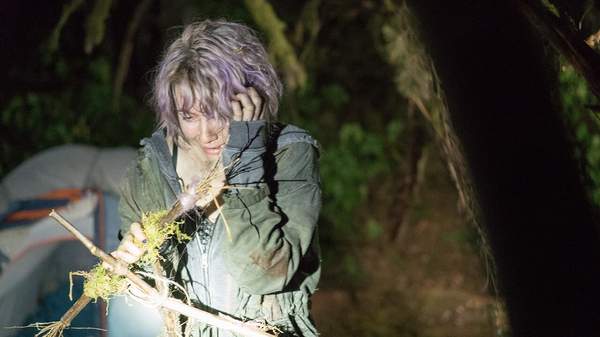Overview
It was the scary sensation of 1999; a documentary-style freak-out that audiences were led to believe was real. A low-budget hit that reignited faux found-footage as an inexpensive but successful method of frightening filmgoers, without The Blair Witch Project, Paranormal Activity and a spate of other imitators might never have existed. And while the original movie already spawned one follow-up back in 2000, it was really only a matter of time before a new sequel wandered out of the woods and back into cinemas.
You could be forgiven for not knowing much about Blair Witch, however. Filmed in secret under a fake name, its true nature was only revealed in July. Other than the involvement of director Adam Wingard and writer Simon Barrett (aka the folks behind playful horror effort You're Next and stylish action thriller The Guest) this initial misdirection is arguably the most intriguing part of a film that knows it has big shoes to fill, and tries to do so as faithfully as possible. Blair Witch treads a familiar path quite literally, sending a new group of camera-wielding college students back into the Black Hills Forest, albeit with some updated tech.
For James Donahue (James Allen McCune), the creepy camping trip is personal, since it was his older sister Heather who disappeared in the original film. When his life-long quest to find out what happened leads him to an online video posted by fellow interested parties Lane (Wes Robinson) and Talia (Valorie Curry), he rounds up his pals Lisa (Callie Hernandez), Ashley (Corbin Reid) and Peter (Brandon Scott) to head off in search of answers. Decking everyone out with earpiece cameras and a short-range drone, Lisa films their trip for a class project.
The on-screen characters mightn't expect the series of events that follows, but audiences certainly will. Immersed in their haunted surroundings, the crew soon starts hearing strange noises and begin to spy spooky stick figures suspended from the trees. When they inevitably try to flee, they end up getting lost and start walking around in circles. And yet, while Blair Witch mightn't chart new narrative ground as it constantly nods to its predecessor, it does conjure the requisite bumps and jumps. The range of visual sources at the film's disposal certainly helps, with Wingard employing urgent, erratic point-of-view shots, as well as lingering glimpses of the sea of trees captured by drone camera from above.
Re-teaming with The Guest cinematographer Robby Baumgartner, enlisting seasoned television editor Louis Cioffi, and composing the score himself, where Wingard fares best is in evoking an unnerving mood. It doesn't always matter that you can see where the story is headed if you remain uneasy and anxious in the moment, with the sound design particularly unsettling. However that still only takes Blair Witch so far. When the third act drops its atmospheric ambiguity for more overt shocks, the movie suffers. Obvious dialogue and by-the-numbers performances likewise dull an otherwise effective rehash.
